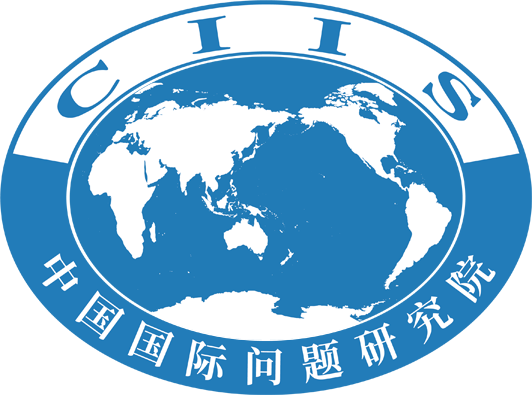Speech by President Qi Zhenhong at the 16th China-U.S. Young Leaders Dialogue
July 29, 2019, New York
Dear Chairman Jeffrey Shafer, Distinguished Experts and Guests:
Good morning!
It is my great pleasure to lead a Chinese expert delegation to New York. On behalf of the China Institute of International Studies, I would like to extend my sincere thanks to Chinese and American experts for attending this Dialogue and to the National Committee on American Foreign Policy for the thoughtful organization and arrangements.
The theme of our dialogue is "Reflections and Possibilities: Commemorating the 40th Anniversary of the Establishment of China-U.S. Diplomatic Relations." Over the past 40 years, despite trials and tribulations, China-U.S. relations have been generally stable, and have become a positive force for maintaining world peace, stability and prosperity.
Today, China-U.S. relations stand at a crucial historical juncture. Over the past two years, we have witnessed the ups and downs of our bilateral relations. It is of great necessity for us to sit down, exchange views and find a way out of the difficulties.
Firstly, the two sides have demonstrated major differences in mutual perception. The United States believes that China has become a "strategic competitor" for the U.S. after the failure of its efforts to bring China into the US-dominated world system after the establishment our diplomatic ties. Some in the U.S. argue for a full "decoupling" from China and replacing cooperation with competition. An increasing number of Chinese people believe that the US-initiated economic and trade frictions and its groundless crackdown against Chinese companies are in essence an effort to block China's development and national rejuvenation. Therefore, we must give up illusions and fight with all our strength. Otherwise, if we keep on retreating, there would be no room to retreat.
Secondly, China and the U.S. are undergoing a full escalation in economic and trade frictions. Since the establishment of diplomatic ties, there have been many cases of trade frictions between China and the U.S., such as in tires and photovoltaic products. But the trade friction that began in August 2017 shows another side. Trade friction escalated into a trade war as the U.S. adopted a policy of maximum pressure and imposed high tariffs on Chinese exports. For the China side, two years of trade frictions have cast doubt on the sincerity of the U.S. in reaching an agreement. This trade war has gone beyond trade itself and has evolved into a part of U.S. containment and crackdown on China.
Thirdly, the two countries have witnessed serious setback in security relations. At present, mil-to-mil exchanges have stalked. The U.S. disinvited the Chinese navy from participating in the RIMPAC exercises. The U.S. military has stepped up "freedom of navigation and overflight" operations in the South China Sea. On the Taiwan issue, a series of bills have been revised and adopted to sell a large number of arms. By playing the Taiwan card, where is the credibility of our U.S. friends? Where do you place the China-US relations? What will the U.S. do if it is held hostage by Taiwan pro-independence separatist forces? As is known to all, China is adamant and resolute in safeguarding its national sovereignty, security and maritime interest, and no one should expect China to swallow the “bitter fruits” of harming its own interest. China has to be prepared to face up to the US bullying.
Fourthly, people-to-people exchanges have become extremely difficult. The responsibility for the current difficulties in people-to-people exchanges does not lie with China, and I believe it is not what people of vision on both sides would like to see. The U.S. put forward the so-called “sharp power” theory, tightened visa examination, and its law enforcement authorities have conducted scrutiny on scholars participating in people-to-people exchanges, making academic activities which are meant to enhance trust and dispel doubts no longer easy. If the opportunity to speak out is blocked, how would misunderstanding between the two sides be reduced?
On June 29th, President Xi Jinping and President Trump held a successful meeting in Osaka, aiming to steer the bilateral relations in the next stage. The two heads of state agreed to continue to advance a China-U.S. relationship featuring coordination, cooperation and stability. To resuscitate our bilateral relations, I believe the two countries must do the following:
Firstly, bring mutual perceptions back on the track of rationality. When President Xi Jinping paid a state visit to the United States in September 2015, he told his American friends that he had read theFederalist Papers, a guiding document of American governance, showing that the Chinese Communists respect the American spirit rather than intending to replace it. At present, some Americans think that China intends to replace the United States, and the view is entirely imaginary and groundless. China does not and will not be. And this is determined by the great spirit of the Chinese Communists and the Chinese nation: to jointly build a community of shared future for mankind through consultation to meet the interests of all.
Secondly, rules of zero-sum games are not in line with the trend of our time. The great achievements China has made owe to the wise leadership of the Communist Party of China, the hard work of the Chinese people, and the reform and opening up policy. In the late 1970s, China established diplomatic relations with Japan, the United States and other countries, integrated itself into the international community and then entered a fast track of development. At present, countries have become increasingly closely inter-dependent. The Cold War mentality and zero-sum game rules will no longer be effective. Since World War II, the United States has been the leader in terms of comprehensive national power. However, it suddenly feels alarmed, anxious and even despiteful to the prospects of being overtaken by other players. Setting up barriers to block opponents is clearly unwise. It would be impossible and futile to contain China's development, and would only bring harm to the US itself.
Thirdly, China and the U.S. should give full play to their economic complementarity rather than seek "decoupling". From the economic and trade perspective, China and the United States, as the world's largest and second largest economies, are deeply embedded in the global industry chain. China and the United States are each other's largest trading partners and major investment destinations, and their interests are highly intertwined. Even against the backdrop of trade frictions, trade between the two countries exceeded 750 billion US dollars in 2018, two-way investment totaled over 240 billion US dollars, and more than 5.15 million people exchanged visits between the two sides. Looking ahead, if China is doing well, U.S. will be benefited. In the same way, if U.S. is doing well, China will also benefit.
Fourthly, maintaining security interaction is good for both countries and the region at large. China and the United States have no territorial disputes, no historical grievances, and no fundamental conflicts of interest. China is neither able nor willing to challenge the U.S. dominance. U.S. military budget for 2020 is set at $750 billion. China's military modernization is to make up for its historical deficit and build a national defense commensurate with its status as a great power. We are an active defensive force in our military spending and in our military strategies, plans and operations. The U.S. has no reason or need to treat China as an adversary or even an enemy.
Fifthly, the narrative of "clash of civilizations" will lead the bilateral relations astray. The Chinese civilization is not expansionary. Neither in the era of tributary system in East Asia, nor in the process of China's returning to the world stage, has it ever waged a war of external plundering. Scholars often use "Confucian peace theory" to explain the lasting peace in East Asia. After the rise of the United States as a world power, it did not seek overseas colonies like the other Western powers. Instead, it fashioned itself as a "city on a hill" to construct an international system to restrain itself. The two historical propositions -- "Make America Great Again" and "Achieve the Great Rejuvenation of the Chinese Nation" -- are not mutually exclusive, but rather mutually reinforcing and fulfilling.
In a word, the 40-year history of China-U.S. relations proves that the two countries benefit from cooperation and suffer from confrontation. As President Xi Jinping pointed out, "There are 1,000 reasons for us to maintain a good China-U.S. relationship, and no single reason for us to spoil the China-U.S. relations." A China-U.S. relationship featuring coordination, cooperation and stability is the only choice for the two countries, and enlarging the pie of common interests and managing differences properly is the only correct option. This is an important topic among the political and academic communities of the two countries. The purpose of the China-U.S. Young Leaders Dialogue is to build a platform for Chinese and American experts to understand each other's concerns, encourage rational exchanges, avoid unnecessary misunderstandings caused by poor exchanges, and provide valuable intellectual support for solving problems and challenges in the bilateral relations.
Today at present are both senior experts and promising talents, I hope you will speak up and take a long-term view while tending to the present. I hope you will contribute to the mutual understanding and mutual trust between the two countries, consolidate the time-honored friendship between the two countries, and contribute to world peace, prosperity and development as well as the prosperity and progress of mankind.
I firmly believe that with the joint efforts of both sides, the next 40 years of china-U.S. relations will be one of closer cooperation and deeper friendship. Although the current relationship has encountered difficulties, it is still a matter of progress and development. However, after the storm comes the rainbow.
In conclusion, I wish the Dialogue a complete success.
Thank you.



